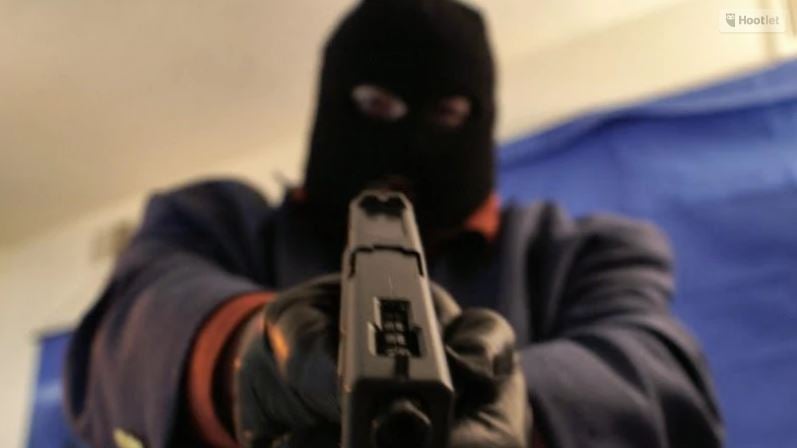The pre-dawn hours of Friday, September 12, 2025, witnessed a terrifying highway robbery on the Sunyani-Kumasi road in Ghana’s Ashanti Region. A Sprinter bus, bearing registration number GG 4181-16, fell prey to a meticulously planned ambush by armed robbers. Carrying at least twenty passengers, the bus was en route to Kumasi when, at approximately 1:00 a.m., a gang of five armed men barricaded the road between Tweapease and Mfensi, near the Moments of Glory Prayer Army (MOGPA). Forced to a sudden halt, the passengers found themselves facing the terrifying reality of a highway robbery. The robbers, brandishing their weapons, systematically relieved each passenger of their valuables. Cash, mobile phones, and other personal belongings were forcibly taken, leaving the victims traumatized and stripped of their possessions.
The attack unfolded swiftly and efficiently, suggesting a level of premeditation and familiarity with the area by the perpetrators. The choice of location, a stretch of road notorious for its dilapidated condition and poor visibility, further points to the robbers’ calculated strategy. The isolation of the area likely provided the criminals with a sense of security and ample time to carry out their operation without immediate fear of intervention. Although the robbers managed to escape with their loot, thankfully, no physical injuries or fatalities were reported. However, the emotional scars of the traumatic experience undoubtedly linger on for the victims.
The incident has reignited a long-standing public outcry concerning the precarious security situation and the deplorable state of the Sunyani-Kumasi road. Residents and regular commuters have consistently raised alarms about the vulnerability of travelers on this particular stretch, which has become a breeding ground for criminal activities. The dilapidated road, riddled with potholes and lacking adequate lighting, creates a perfect storm for ambushes. The slow and arduous navigation required by drivers makes vehicles easy targets for criminals who can anticipate their movements and plan attacks accordingly. The incident serves as a stark reminder of the urgent need for government intervention to address the root causes of this recurring problem.
The recurring nature of such attacks underscores a systemic failure in addressing the underlying issues that plague this stretch of road. The lack of adequate security measures, coupled with the poor infrastructure, creates an environment conducive to criminal activity. Residents and commuters have long complained about the absence of regular police patrols and the lack of a rapid response system in case of emergencies. This sense of impunity emboldens criminals, who are aware of the low probability of apprehension. The government’s failure to prioritize the rehabilitation of the road further exacerbates the problem, turning a routine commute into a risky endeavor.
The calls for improved security measures encompass a range of demands, including increased police visibility, the establishment of permanent checkpoints along the route, and the installation of surveillance systems to deter potential criminals and aid in investigations. Furthermore, the community has highlighted the need for improved communication infrastructure to facilitate swift reporting of incidents and ensure a timely response from law enforcement. The lack of reliable mobile network coverage in certain areas along the route further compounds the vulnerability of travelers, as it hinders their ability to call for help in emergencies.
Beyond immediate security measures, the long-term solution lies in addressing the root cause of the problem: the deplorable state of the Sunyani-Kumasi road. Investing in the rehabilitation and upgrading of the road infrastructure is crucial not only for enhancing safety and security but also for promoting economic development in the region. A well-maintained road network facilitates trade, improves access to essential services, and contributes to overall economic growth. The government’s commitment to infrastructure development must translate into tangible action on the ground to address the pressing needs of the community and ensure the safety and security of its citizens. The incident serves as a wake-up call, demanding immediate and decisive action from the authorities.














